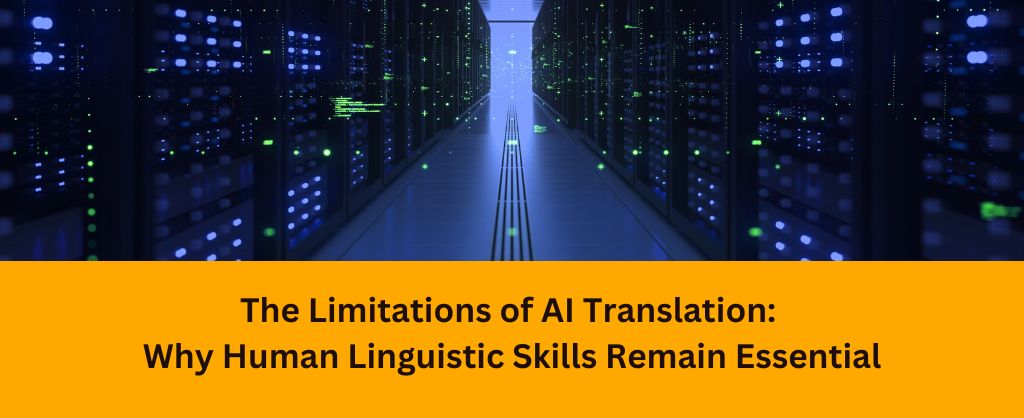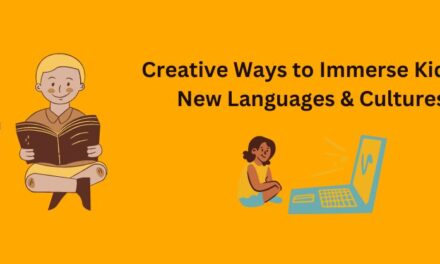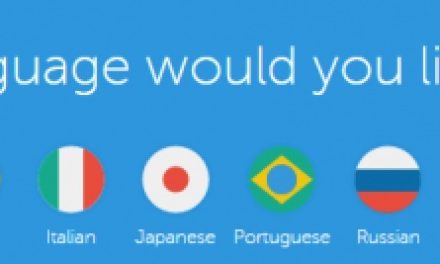Will AI Replace The Need For Learning Languages?

Technology is advancing quickly. Artificial intelligence (AI) is getting smarter every day. Some people think that soon AI will be so good at translating languages that humans won’t need to learn other languages anymore.
But is this really true? Will AI make learning languages pointless?
The short answer is: No, AI will not completely replace the need for humans to learn languages.
Can AI Really Replace Human Language Skills?
Powerful new AI translation tools represent an impressive technological feat. Services like Google Translate can translate full documents between over 100 languages with decent accuracy. The technology improves constantly through advances in machine learning.
Learn Languages Faster with AI Chatbots
However, limitations remain. AI still struggles to detect subtleties like humor, rhyme, sarcasm, or emotional tone. It stumbles translating poetry and complex dialogue where contextual inferences are vital. AI cannot yet replicate the cultural fluency and reasoning skills that humans intuitively use to clarify meaning.
Here are some issues AI translators still struggle with:
- Subtleties: Humans understand subtle nuances in language that are hard for AI to pick up on. Sarcasm, humor, rhymes, and poetry are often translated incorrectly.
- Tone and emotion: AI has a hard time conveying the right tone or emotion in a translation. Text that should sound friendly could come across as blunt or rude.
- Rare languages: Most translation AI focuses on major languages like English, Spanish, Chinese. But many smaller languages have little data for AI to learn from. Human translators are still needed here.
- Reliability: AI translators can fail without warning if the input text is poor quality or lacks context. Human translators are better at clarifying meaning and providing reliable, high-quality translations.
So while AI translation tools are helpful, human translations are still superior in many cases. AI alone cannot fully replicate the complexity of human language – at least not yet.
Can an AI Chatbot Help You Learn a New Language?
Beyond Translation: The Enduring Value of Human Multilingualism
Language learning confers cognitive, academic, and cultural benefits that AI cannot replace. Studies correlate bilingualism with improved memory, critical thinking, and problem-solving skills. Multilingual abilities open educational and career opportunities unavailable to monolingual individuals.
Cultural insight comes through lived human experience.
AI lacks the relationships and empathy needed for meaningful intercultural exchange. If we over-rely on technology, we risk damaging connections between communities. Active use and sharing of languages, especially minority tongues, is key to preserving cultural heritage against extinction.
Diplomacy, business, philosophy – these high-level pursuits depend on nuanced human communication. Subtle conceptual alignment between brilliant minds cannot be replicated by machines. We should be cautious that convenience does not compromise quality of discourse.
Why AI Cannot Replace Human Linguistic Ability
AI promises to make multilingual communication seamless. But it is one thing to transmit information, another to foster mutual understanding between people.
Human languages communicate emotion, values, and the full range of human experience – not just words.
No matter how advanced algorithms get, a matrix of code cannot replicate core elements of human language:
- Creativity – rhymes, wordplay, poetry
- Empathy – consoling, encouraging, caring
- Wisdom – proverbs, teachings, philosophies
- Emotion – love, joy, comfort, humor
- Culture – values, traditions, rituals, beliefs
These intangible human realities get lost in translation by an AI system. Your deepest hopes and dreams cannot be understood by machines. Cold efficiency cannot replace warm human rapport.
Language Learning in the Age of AI: Threat or Opportunity?
AI will undoubtedly shape the future of language learning. But its growing role presents both risks and opportunities. Used carefully, AI could make language education more accessible and engaging. But we must be wary of over-reliance on technology.
If society depends too heavily on algorithms, cultural nuance may be lost.
People risk becoming passive consumers of information rather than active participants in cultural exchange. Yet if employed strategically, AI could allow educators to focus on higher-level linguistic and cultural pursuits.
Students should use the tools available to them, while retaining the ethos of language as an expression of human culture. AI can catalyze growth in language programs if deployed judiciously, expanding access without compromising quality discourse between people.
The goal should not be human versus machine, but rather optimized symbiosis. Interactive virtual conversant augment, rather than replace, human teachers.
Chatbots practice vocabulary so instructors can lead creative discussions on linguistics and ethics. AI translation aids reading fluency so students can study philosophy and history.
With care, AI could democratize language education – an opportunity, not a threat.
AI Translation vs. Human Language Mastery
As AI translation becomes more ubiquitous, the question arises: are we approaching a technological ceiling to human linguistic skills? Is there a plateau beyond which human language mastery becomes redundant?
In truth, this framing sets up a false dichotomy between human abilities and AI. Mastering languages is not just about fluency in vocabulary or grammar. Rather, it represents a perspective shift – an opening of one’s mind to alternate worldviews expressed through culture, poetry, values, and tradition.
AI may someday allow near-instantaneous translation between any language. But no algorithm can replicate the insight gained from studying centuries of literature or debating philosophies across cultures.
Technology skeptics imagine a dystopian world where human discourse is dominated by automated machines. But a more uplifting narrative is possible – one where global citizens use technology wisely to celebrate the breadth of human linguistic diversity.
Will AI Make Human Languages Obsolete?
For the over 7,000 languages spoken worldwide, the AI revolution brings both promise and peril. On one hand, natural language processing could help digitally preserve endangered languages or make language learning more accessible.
But will AI also make universal translation so seamless that human languages become obsolete?
In truth, the full vibrancy of human languages is unlikely to ever be replicable by machines. Abstract poetry untranslatable between tongues hints at the beauty within all cultures.
Ancient oral traditions pass down generations through song, story, and ritual. The fabric of human life is woven together by language – our memories, dreams, imaginings, loves, losses, kindnesses, and aspirations inhabit a world no algorithm can truly enter.
AI may become fluent in vocabulary and grammar. But human languages are living artifacts carrying all the complexities of the human experience within them.
Even with great advances in AI, human multilingualism will likely remain key to appreciating the vast diversity of human expression across cultures.
Why Cultural and Linguistic Exchange Still Matters in the AI Era
Some believe AI translation could make learning languages pointless if technology can instantly bridge communication gaps. But is transliterating words between languages the pinnacle of what it means to understand global cultures?
Merely transmitting information is not the same as fostering mutual respect between people. Shared language learning builds relationships and social bonds that AI cannot replicate. It propagates compassion and celebrates our shared humanity.
If we over-rely on technology, we risk losing access to the wisdom passed down through languages over millennia. The fruits of cultural exchange – philosophy, spirituality, scientific insight, poetry – all originate from diverse human experiences expressed through varied tongues.
AI should assist global discourse, not dominate it.
As technological citizens, we can nurture cultural understanding by preserving and celebrating the dynamism of human languages.
Humans vs. Machines: The Limits of AI in Language Learning
In contemplating the future of multilingualism, some posit an eventual showdown between human abilities and inexorable technological progress. But in reality, framing human language skills and AI translation as binary opposites may do a disservice to both.
Rather than rivals in some zero-sum game, humans and machines can play complementary roles. People focus on cultural nuance, metaphorical language, and subjective experiences conveyed through diverse tongues over millennia. Meanwhile, AI systems provide real-time lexical translation and basic communication bridging between languages.
Already, innovative programs are pairing AI and human instruction in creative ways to expand access to language education. Virtually-assisted conversations create immersive practice environments.
Intelligent tutors allow personalized learning. And by handling repetitive exercises, AI enables educators to lead engaging lessons on higher-level cultural concepts.
Ultimately, the ideal symbiosis between humans and technology remains undefined. But we should not fear progress, nor abdicate our responsibilities. Our human capacity for language is a gift we must master with wisdom.
Why We Still Need Polyglots: Human vs. Artificial Multilingualism
Polyglots who master six, seven, even a dozen languages are often seen as linguistic superheroes. Some wonder if AI translation tools will eventually make such expertise obsolete.
But the expansive perspective gained from such rigorous multilingual training hints at capabilities no technology can yet truly emulate.
Each new language changes how one perceives the world, unlocking new insights about history, philosophy, art, and the human experience.
Polyglots often speak of a “linguistic consciousness” that grows incrementally with each new language learned over a lifetime.
No doubt, AI algorithms excel at verbatim translation between lexical domains. But human minds excel at weaving together disparate ideas, Adaptability, emotional intelligence, creativity – these skills develop cumulatively with each language acquired.
Rather than compete with technology, polyglots harness algorithms to enhance their understanding and bring translations to global audiences.
Such interplay between human capacities and AI systems hints at the cooperative future that could catalyze cross-cultural discourse to new heights.
Conclusion and Key Takeaways
- AI translation tools are helpful but have limitations in nuance, tone, and reliability. Human skills remain superior in many cases.
- Studying languages provides unique cultural, cognitive, academic, and social benefits that AI cannot replicate.
- Rather than replacing human linguistic skills entirely, AI will likely play a complementary role – expanding access while humans focus on high-value cultural and social linguistics.
- Human language learning retains importance for understanding nuance, building relationships, and preserving heritage.
So in summary – no, AI will not make human language learning obsolete anytime soon. Mastering languages remains culturally and socially important even with technological advances in translation.
AI will become a useful assistive tool, but not a wholesale replacement, for true human multilingual abilities.













